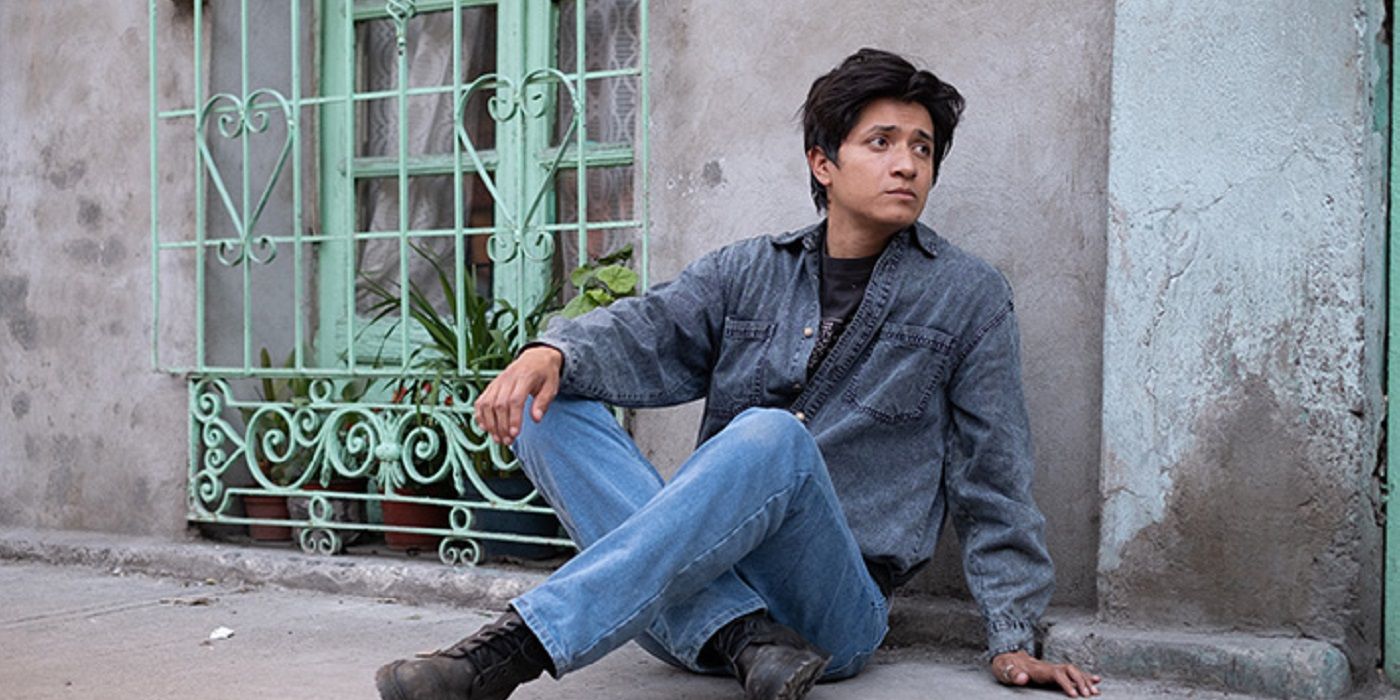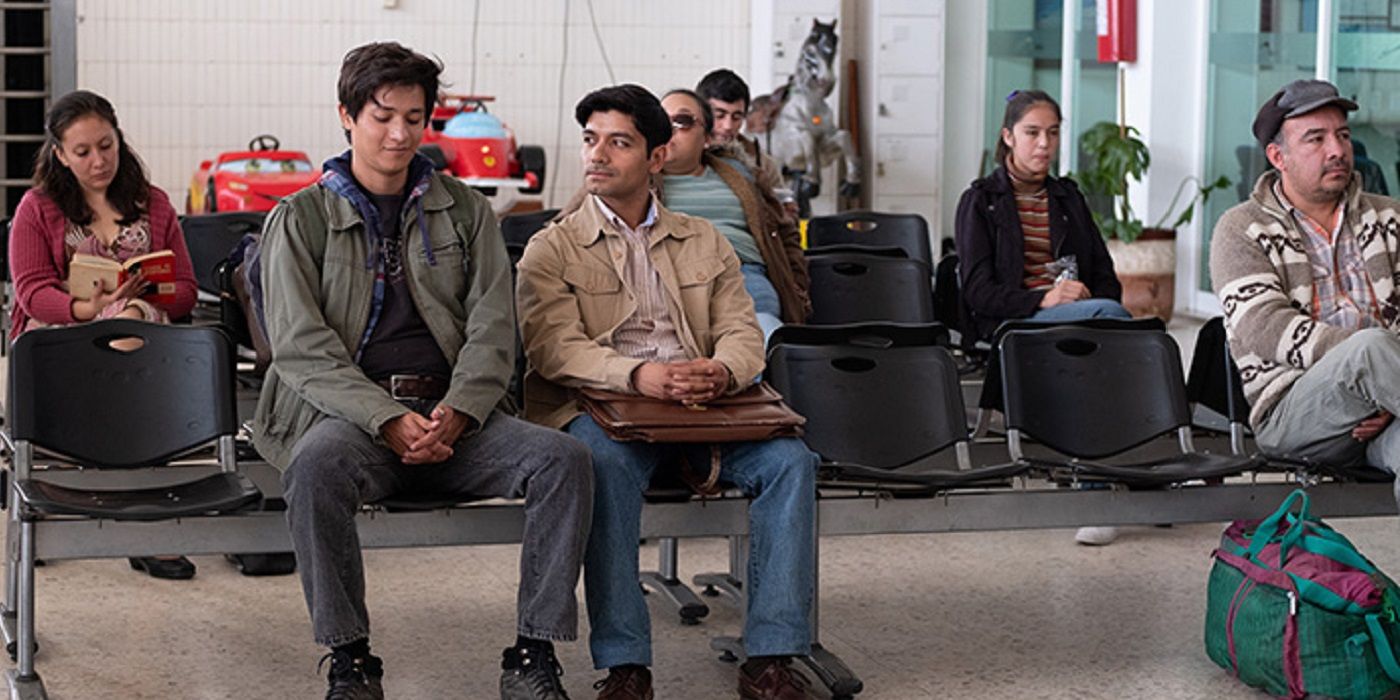I Carry You With Me, directed by Heidi Ewing from a screenplay by her and Alan Page Arriaga, is fluent in the complexities of the migrant experience and a sensual, nearly ill-timed, romance. The film, which is based on the real-life stories of Iván Garcia and Gerardo Zabaleta, explores love and loss, success, and the ache of being separated from one’s family due to U.S. immigration laws. I Carry You With Me poignantly captures the ache, the beauty of the characters’ love, and the pieces that get left behind in pursuit of something new.
When the film picks up with Iván (Armando Espitia), he cleans and assists around a restaurant kitchen in Puebla, Mexico. Having attended a culinary school, he dreams of being a chef and owning his own restaurant one day. Iván also has a son, though his relationship with the mother is incredibly strained. While he does the best he can in the situation he's, the aspiring chef has to hide the fact he is gay because he wouldn’t be accepted by his family; the fear of being separated from his son looms large. When Iván meets Gerardo (Christian Vázquez), they have an instant connection and their love, as deep as it is, feels like it came at the wrong time. Iván ultimately decides to “cross over” into the United States, having to leave his son and Gerardo behind in the hopes that he can achieve his long-held dreams and persevere despite everything.
Ewing combines her documentary skills with her feature filmmaking ones, with most of the film set in the mid-90s before parts of the final act bring the audience into the present day New York to catch up with the real-life Garcia and Zabaleta. I Carry You With Me is explored through the lens of Iván’s memory — of longing, regret, hardship, love, and happiness. The director sensuously conveys the uphill battle that has been Iván’s entire life. There’s a sense of not belonging completely in Mexico or the U.S., with Iván not feeling accepted by his family or the mother of his child and, despite his success as a chef, having to deal with being othered and stuck in a country that won’t let him go back to visit his son because of its immigration laws.
To that end, the film speaks deeply to the migrant experience, of being caught between two worlds and having to face a sense of isolation from both in many regards. In the U.S., Iván is able to succeed as a chef, but his achievement is also overshadowed by the bitter obstacles standing in the way of seeing his son. He is never fully whole and Ewing effectively captures these feelings, the ups and downs, so exquisitely. The film also takes to task the immigration laws that separate families; Iván’s son and, at one point, Gerardo are prevented from entering the U.S., their Visas rejected without remorse. It creates a divide and I Carry You With Me handles Iván’s feelings surrounding it with care and sensitivity, balancing the excitement of the things he has accomplished with an anguished emptiness of having to leave parts of him behind in a place he can never return.
With intimate camera angles and Juan Pablo Ramírez’s exquisite cinematography, I Carry You With Me enters into Iván’s world, almost like an outsider intervening in private moments at times. But this style makes the film all the more beautiful as it lovingly captures Iván’s interiority and the everyday details that make up his life. When, through voiceover, Iván describes the streets of Puebla, the shops, the atmosphere, the sounds, sights, and people, the audience feels enveloped by these memories thanks to the directing and cinematography (which can’t be celebrated enough, frankly). There is also a deep tenderness in the portrayal of Iván and Gerardo’s love story. Soft touches, sensual kisses, and an undeniable closeness permeate every moment they are together. This kind of intimacy, one that leans into both the physical and emotional, has been missing from many films in recent years, and they should all take note of how masterfully and sensitively I Carry You With Me handles its central romance.
It’s a bit jarring when the film does shift to the present day and stays there near the end. That said, however, Ewing shifts between the past, present, and childhood flashbacks rather seamlessly for the most part. It creates a fully realized picture of Iván and Gerardo’s lives. Their love story remains at the center of I Carry You With Me, elevating every moment of the characters’ lives in a moving, gorgeously executed film that deserves all the attention and accolades it receives.
I Carry You With Me is now playing in theaters. The film is 111 minutes long and is rated R for language and brief nudity.



